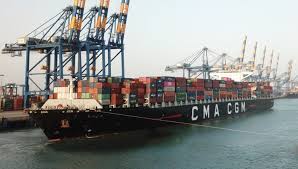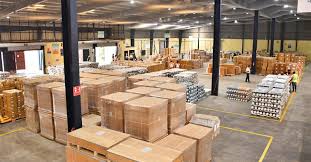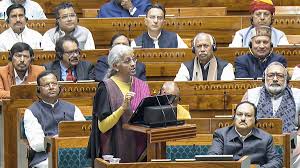India’s manufacturing dreams hinge on addressing logistics and infrastructure challenges. Streamlined processes, better infrastructure, skilled labour, export focus, and transparency can propel the nation to global leadership. Insights from industry leader V. Chandra Kumar show the way.

India stands at a critical juncture, ready to leverage global supply chain shifts and rising domestic demand. V. Chandra Kumar, Founder and Managing Director, Active Freight Logistics, highlights that initiatives like “Make in India” have laid a strong foundation. However, without addressing key hurdles—primarily in logistics and infrastructure—India risks losing its edge to global competitors like China and Vietnam.
Efficient logistics is the backbone of any manufacturing economy. Without it, production costs rise, deliveries are delayed, and competitiveness suffers. Here’s how India can reshape its logistics sector to support manufacturing growth and drive economic prosperity.
Reviving manufacturing dreams
- Streamlining Approvals
A single-window digital clearance system is crucial for industrial growth. Lengthy approval processes for land, construction, and operations delay progress. Automation and reduced bureaucracy can fast-track manufacturing units.
Logistics Impact: Faster approvals enable swift setup of logistics hubs, warehouses, and transport facilities, ensuring seamless supply chains and minimising project delays.
- Strengthening Infrastructure
India must modernise ports, ensure reliable power, and develop well-connected industrial parks to compete globally. World-class infrastructure is essential for efficient manufacturing and trade.
Logistics Impact: Faster cargo handling at ports, dedicated freight corridors for swift movement and advanced warehousing will enhance supply chains, lower costs, and boost just-in-time production.
- Empowering Skilled Labor
India needs a workforce trained to meet industry-specific demands. Aligning skill programs with manufacturing needs and offering hands-on experience in automation, engineering, and logistics is vital for competitiveness.
Logistics Impact: Skilled professionals in supply chain roles boost efficiency, minimise damages, and meet global standards, benefiting key sectors like pharmaceuticals, electronics, and automotive.
- Boosting Exports
India must strengthen trade agreements, simplify export processes, and elevate quality standards to integrate into global supply chains effectively.
Logistics Impact: Paperless customs, incentivised SEZs, and direct shipping routes will reduce delays, cut costs, and enhance delivery efficiency, attracting global manufacturers.
- Ensuring Transparency
Bureaucratic inefficiencies and corruption slow India’s logistics sector. Digital tracking, transparency, and accountability can eliminate favouritism and accelerate operations.
Logistics Impact: Digitised customs clearance and AI-driven monitoring will streamline approvals, prevent malpractices, and create a fair, efficient supply chain.
The road ahead: Logistics strategy
For India’s manufacturing sector to thrive, logistics must shift from a bottleneck to a competitive edge. Governments and businesses must collaborate to invest in infrastructure, technology, and skill development. A well-integrated logistics ecosystem will not only help India achieve its manufacturing goals but also position it as a global trade leader.
The time for action is now. Addressing these core challenges will transform India’s manufacturing landscape and build a resilient, future-ready economy.










